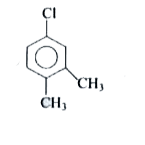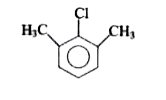Substrate which is not readsorbed in urine is
Carbohydrates
Fats
Vitamins
Proteins
The correct Answer is:C
To determine which substrate is not reabsorbed in urine, we need to analyze the options provided: carbohydrates, fats, vitamins, and proteins.
1. Understanding Reabsorption in the Kidneys:
- The kidneys filter blood to produce urine, and during this process, certain substances are reabsorbed back into the bloodstream while others are excreted.
2. Analyzing Each Option:
- Carbohydrates:
- The primary carbohydrate in the blood is glucose. Glucose is 100% reabsorbed in the renal tubules under normal conditions. Therefore, carbohydrates are not the correct answer.
- Fats:
- Fats are generally insoluble in water and are not typically found in urine. They are not filtered through the kidneys in significant amounts and thus are not reabsorbed. However, they are not excreted in urine. Hence, fats are not the correct answer.
- Vitamins:
- Vitamins can be categorized into water-soluble (like vitamin B and C) and fat-soluble (like vitamins A, D, E, and K). Water-soluble vitamins are often excreted in urine when in excess, and some, like vitamin B and C, are not reabsorbed effectively. Therefore, vitamins could be a potential answer.
- Proteins:
- Proteins are typically too large to be filtered through the glomerulus of the kidneys and are not found in urine under normal circumstances. If present, they are usually reabsorbed. Thus, proteins are not the correct answer.
3. Conclusion:
- Based on the analysis, the substrate that is not reabsorbed in urine is vitamins, particularly water-soluble vitamins like vitamin B and C.
Final Answer:
The substrate which is not reabsorbed in urine is vitamins.
---
- The kidneys filter blood to produce urine, and during this process, certain substances are reabsorbed back into the bloodstream while others are excreted.
- Carbohydrates:
- The primary carbohydrate in the blood is glucose. Glucose is 100% reabsorbed in the renal tubules under normal conditions. Therefore, carbohydrates are not the correct answer.
- Fats:
- Fats are generally insoluble in water and are not typically found in urine. They are not filtered through the kidneys in significant amounts and thus are not reabsorbed. However, they are not excreted in urine. Hence, fats are not the correct answer.
- Vitamins:
- Vitamins can be categorized into water-soluble (like vitamin B and C) and fat-soluble (like vitamins A, D, E, and K). Water-soluble vitamins are often excreted in urine when in excess, and some, like vitamin B and C, are not reabsorbed effectively. Therefore, vitamins could be a potential answer.
- Proteins:
- Proteins are typically too large to be filtered through the glomerulus of the kidneys and are not found in urine under normal circumstances. If present, they are usually reabsorbed. Thus, proteins are not the correct answer.
- Based on the analysis, the substrate that is not reabsorbed in urine is vitamins, particularly water-soluble vitamins like vitamin B and C.
The substrate which is not reabsorbed in urine is vitamins.
Topper's Solved these Questions
- EXCRETORY PRODUCTS AND THEIR ELIMINATIONBOOK - DINESH PUBLICATION ENGLISHCHAPTER - EXCRETORY PRODUCTS AND THEIR ELIMINATIONEXERCISE - Check your graps
10 Videos
- EXCRETORY PRODUCTS AND THEIR ELIMINATIONBOOK - DINESH PUBLICATION ENGLISHCHAPTER - EXCRETORY PRODUCTS AND THEIR ELIMINATIONEXERCISE - Check your graps
10 Videos
- EVIDENCES OF EVOLUTIONBOOK - DINESH PUBLICATION ENGLISHCHAPTER - EVIDENCES OF EVOLUTIONEXERCISE - CHECK YOUR GRASP
19 Videos
- FAMILIES OF FLOWERING PLANTSBOOK - DINESH PUBLICATION ENGLISHCHAPTER - FAMILIES OF FLOWERING PLANTSEXERCISE - BRAIN TEASERS -II
97 Videos
Similar Questions
Knowledge Check
Which one of the following substrate will not form benzyne when treated with NaNH2 ?
AC6H5ClB C
C D
D
Which one of the following is not normally excreted in urine?
AUric acidBHaemoglobinCketone bodiesDHipuuric acid
Substrate for lipase is
View SolutionThe amount of urea which is excreted out in the urine per day of an adult human is
View SolutionWhich of the following substrate is not correctly matched with its end products?
View SolutionName the substrate which has R.Q value less than unity.
View SolutionIn alcoholics, urine is
View SolutionWhich ones regulate solute reabsorption during urine formation
View Solution
